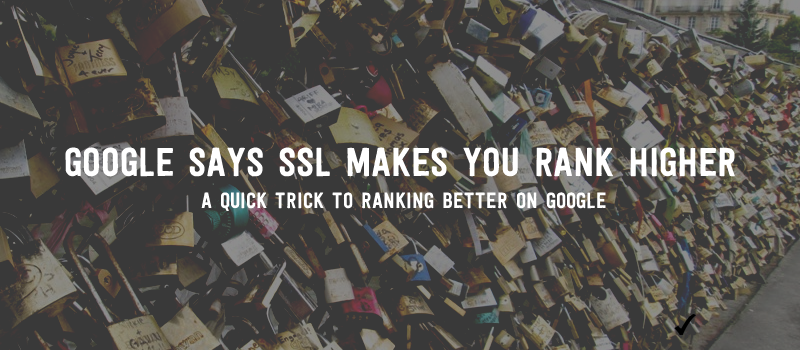Google is making SSL Certificates a bigger priority in search rankings
Google has just published an interesting blog post about SEO best practices on its Webmaster Central Blog, and one interesting detail is that Google is going to start ranking sites with SSL Certificates higher. Google is making this move because it believes in making the internet a more secure place, and a more secure web starts with more secure website […]

Google has just published an interesting blog post about SEO best practices on its Webmaster Central Blog, and one interesting detail is that Google is going to start ranking sites with SSL Certificates higher. Google is making this move because it believes in making the internet a more secure place, and a more secure web starts with more secure website connections.
Google explains that it’s “Working to make the Internet safer more broadly. A big part of that is making sure that websites people access from Google are secure.”
Google’s new prioritization of SSL Certificates is a perfect way to encourage people to adopt HTTPS. They’ve been running search ranking experiments for a few months that take into account whether sites use an encrypted connection. They’ve seen positive results with their experiments, which has led them to announce that they’re going to start factoring HTTPS into their search ranking algorithm. They’re starting this initiative slowly so that website owners aren’t immediately punished for not having SSL on their site, but they’ve have said that they’ll likely decide to increase the amount that having SSL is factored into search ranking.
Because this adjustment to the algorithm change was just announced by Google, details are a bit sparse. However, they’ve said they’ll publish best practices on secure connections in the coming weeks and have offered a few preliminary tips on getting started:
- Decide the kind of certificate you need: single, multi-domain, or wildcard certificate
- Use 2048-bit key certificates
- Use relative URLs for resources that reside on the same secure domain
- Use protocol relative URLs for all other domains
- Check out this Site move article for more guidelines on how to change your website’s address
- Don’t block your HTTPS site from crawling using robots.txt
- Allow indexing of your pages by search engines where possible. Avoid the noindex robots meta tag.
We’ll definitely be writing more about this in the coming weeks on the Name.com Blog. If you don’t have SSL on your site, you can add SSL easily here.

